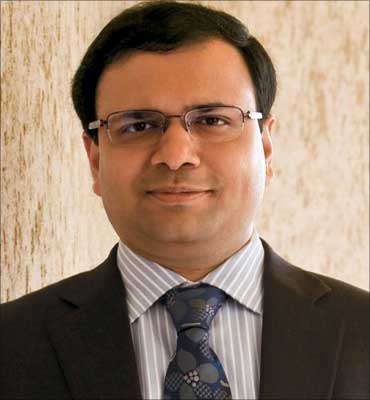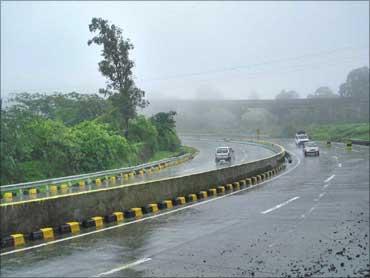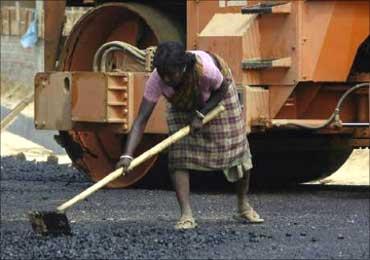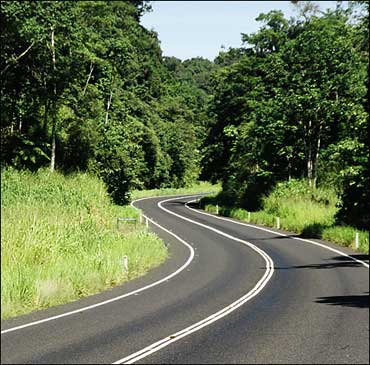 | « Back to article | Print this article |
The man who is building India's highways
Ironically, the road outside IRB Complex, the headquarters of the country's leading highway construction company, is full of potholes.
After the potholes grew larger thanks to the incessant rains, Virendra Mhaiskar voluntarily set out to repair the road at Chandivali in Mumbai's Andheri area.
Work began at night, but the IRB chairman says he couldn't complete the work as a resident of the area complained to the police about the noise.
Thankfully, Mhaiskar, who joined the business at the age of 19, has had much better luck with his other projects.
IRB Infrastructure, which executed the country's first build-operate-transfer road project, is one of the largest operators of such ventures, with a total length of around 1,000 km under management.
It has a share of around 8 per cent of the Golden Quadrilateral.
Click on NEXT to read more...
The man who is building India's highways
IRB has 16 road projects, of which 10 are operational and two are under construction.
In June, when not many companies were keen on the road sector and there were only a few bidders in the race, IRB won four projects in a single month.
The move helped the company spread its projects outside Maharashtra and Gujarat, which account for 70 per cent of its BOT portfolio, with the largest being the showcase Mumbai-Pune Expressway.
Significantly, seven of the 16 projects are debt-free, which indicate a relatively low interest burden and better cash flows.
And profit from these debt-free projects will be ploughed back into the company for new projects.
The high share of in-house construction (60 per cent) also ensures timely completion of projects and better margins, which at 22-23 per cent are double its peers.
Click on NEXT to read more...
The man who is building India's highways
The company saves on costs by owning stone aggregate quarries (essential raw material in highway construction) and construction equipment, hence boosting profitability.
IRB is also pre-qualified to bid for projects worth 24,600 crore ( 246 billion), expected to come up for bidding over the next two to three quarters.
With a total market cap of over 9,500 crore ( 95 billion), IRB Infrastructure sees traffic growth at par with the GDP growth rate and the tariffs to rise at around 6 per cent a year.
One of the reasons for the company's comfortable finances is that Mhaiskar locked himself in a fixed-rate contract for a three-year period in March for the funding needs of his projects, even as interest rates are rising.
But analysts say there is a huge element of risk in IRB's business model, which is heavily BOT-based.
A BNP Paribas report said while the developer bears the risk in case traffic growth is below projections, BOT projects are long-gestation ventures that are very sensitive to traffic growth.
Click on NEXT to read more...
The man who is building India's highways
But Mhaiskar says, "Regulatory changes could have impacted us if we were a pure developer. Since we have a presence across the value chain, we were able to adapt to change much better than others."
Mhaiskar says he will stick to the BOT model as he does not see any upside in annuity-based projects, except probably saving the differential in interest cost.
"In a toll-based project, you are least dependent on the government and have a greater control over a project. It is high-risk, but also gives high returns," he adds.
The company uses cash generated from its road projects to grow its portfolio.
"We have internal accruals of around 1,500 crore ( 15 billion), which will take care of the equity requirement for new projects worth 5,000 crore ( 50 billion). After one more year, more revenue will come in and the ability to fund projects will increase," says Mhaiskar.




